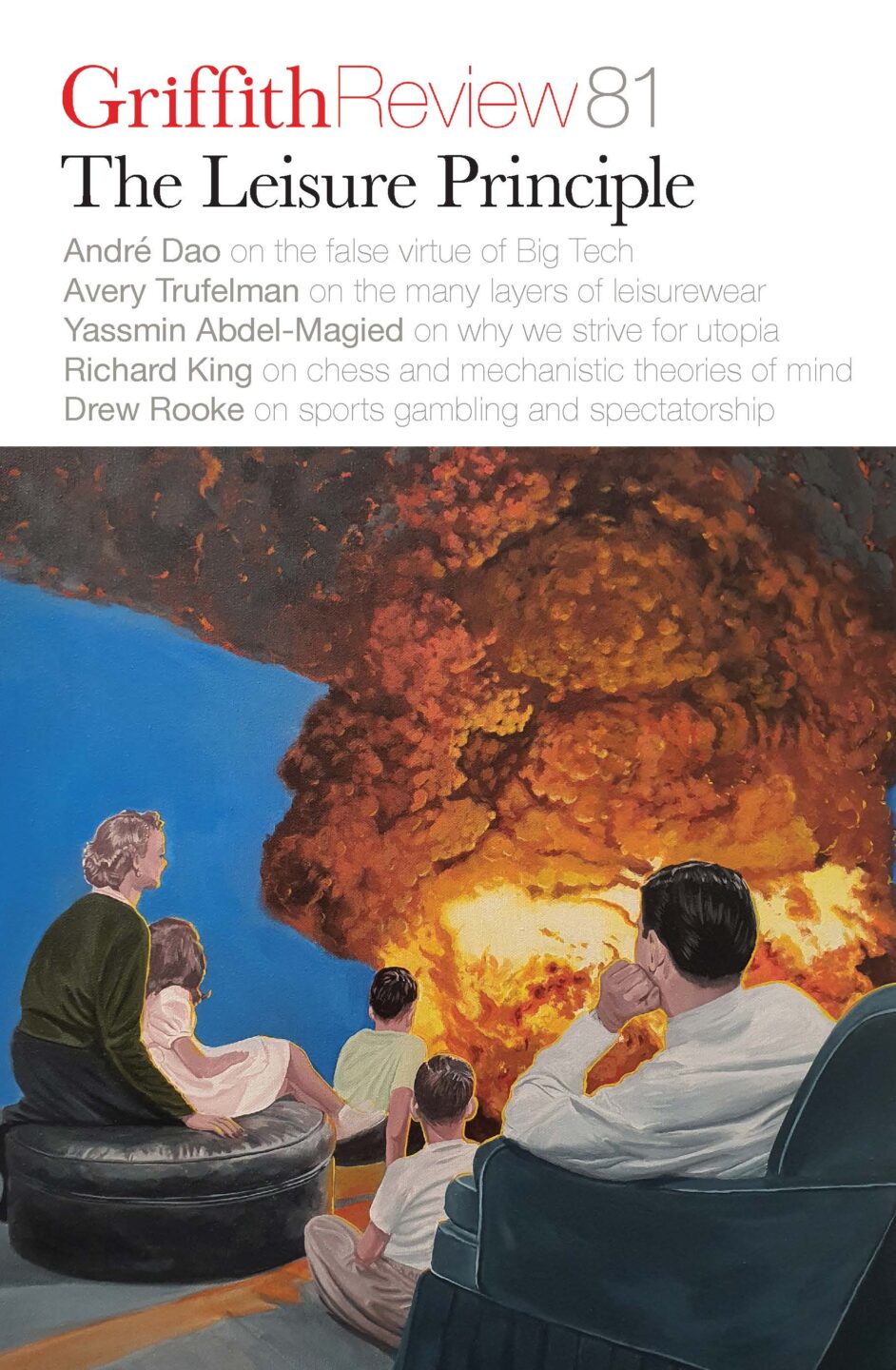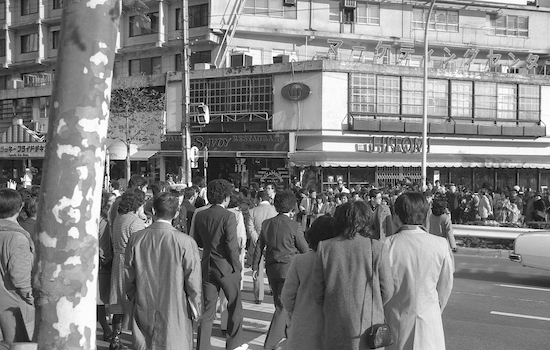Featured in

- Published 20230801
- ISBN: 978-1-922212-86-3
- Extent: 200pp
- Paperback (234 x 153mm), eBook


Already a subscriber? Sign in here
If you are an educator or student wishing to access content for study purposes please contact us at griffithreview@griffith.edu.au
Share article
About the author

Katerina Gibson
Katerina Gibson is a writer living in Naarm (Melbourne). Her debut collection, Women I Know (Scribner, 2022), won the 2023 Christina Stead Prize for Fiction....
More from this edition

Their presence
Poetry Straight away you’re taller, sprung firm andspry by their ecstatic vocal runs and upscaling,by their tripping lightly over pages of dogma in the opening chorus...

Just like the day before and the day
Poetry after and the day beyond thatday and all the days,chairs stack up in silentrestaurants, bicycle couriers carryon past hire kit cooling itby roadsides here...

Virtue signals
Non-fictionThe sheer speed and volume at which data is processed, coupled with popular imaginings of the infallibility of machines, means that predictions produced by such processes are imbued with the aura of objectivity. As a result, hard decisions – acting in contexts of radical uncertainty, and having to determine winners and losers – become easy ones based on limited considerations directed towards improving the lot of as many individuals as possible while doing least harm. In other words, big data transforms the need to act politically into the possibility of acting only technically.